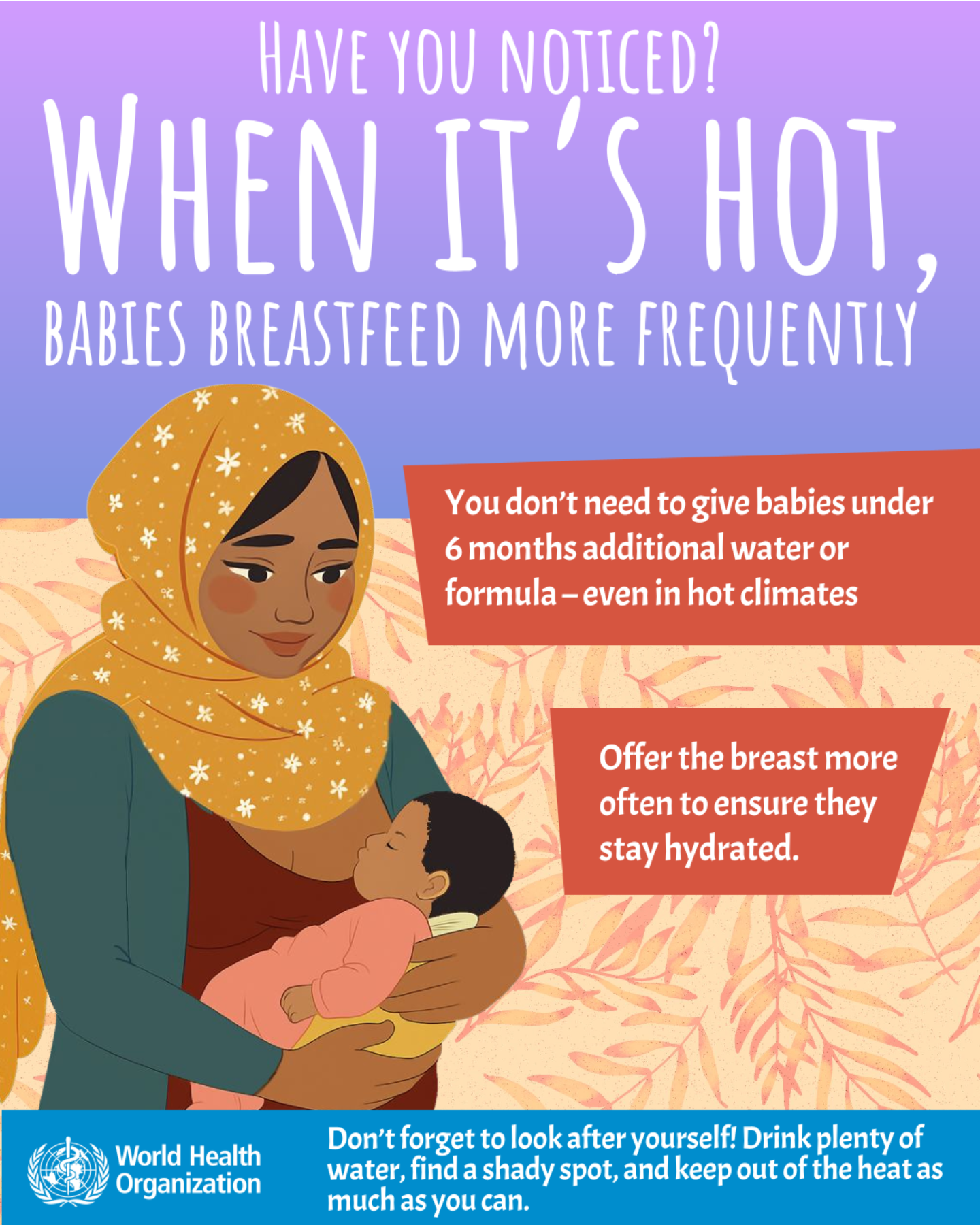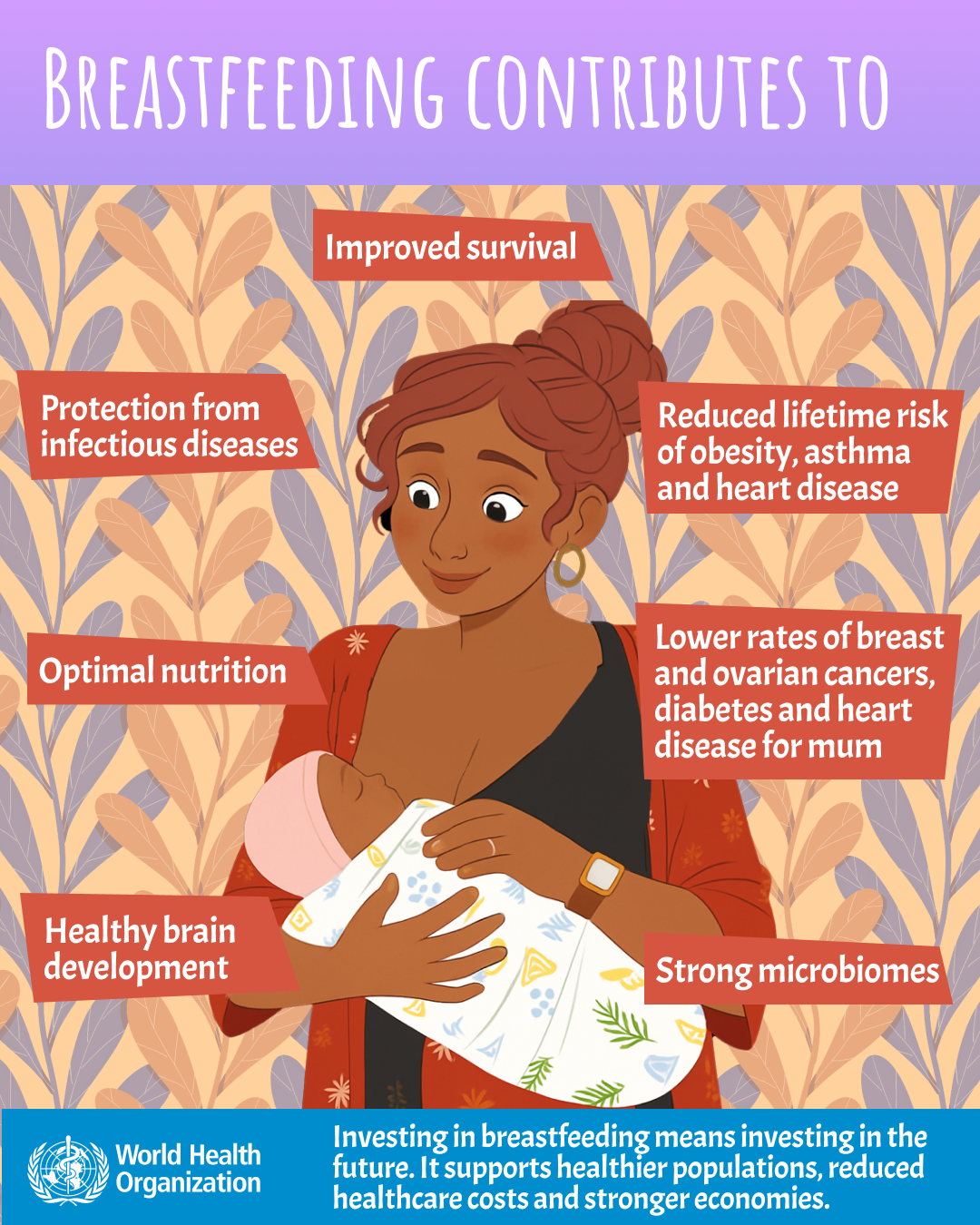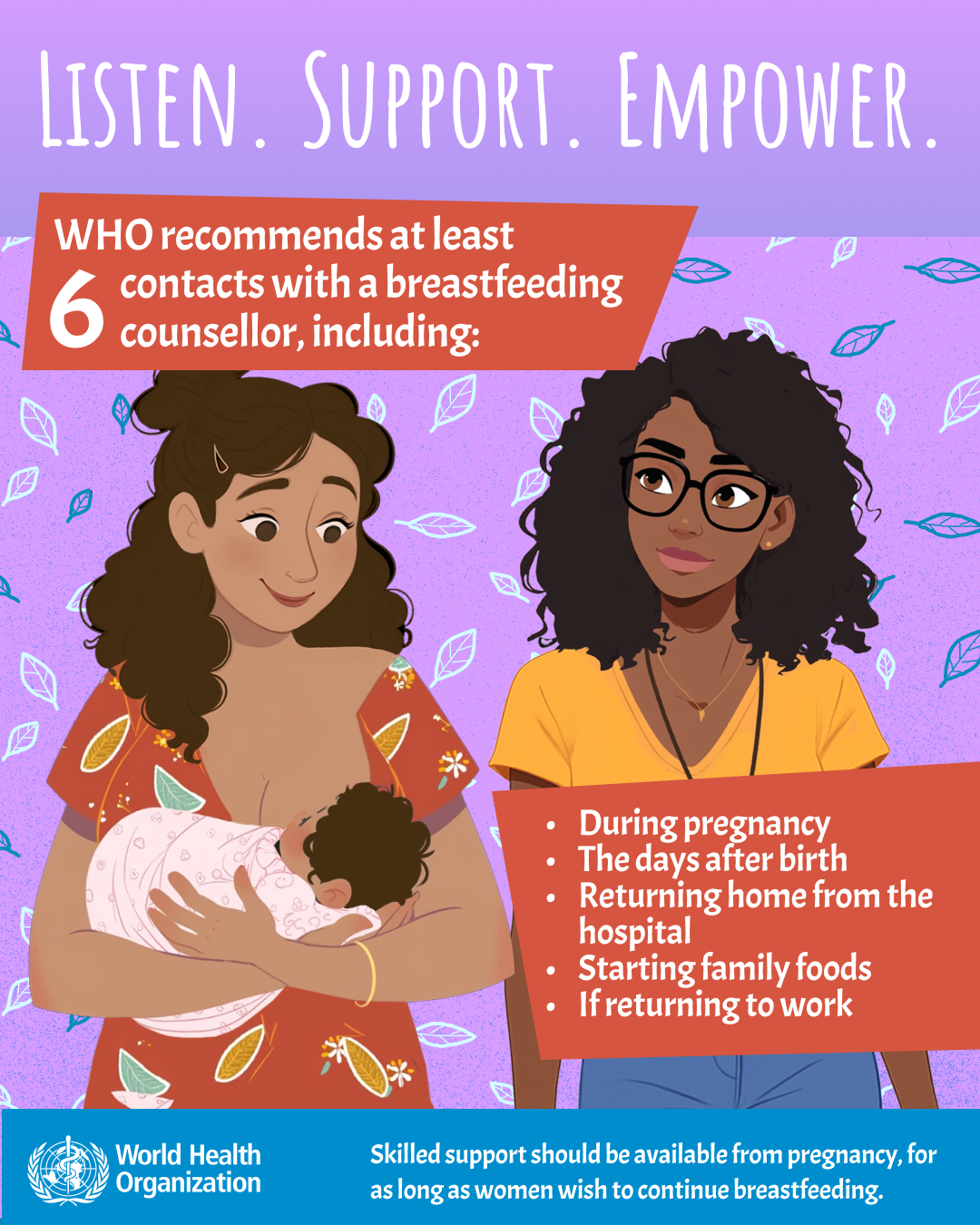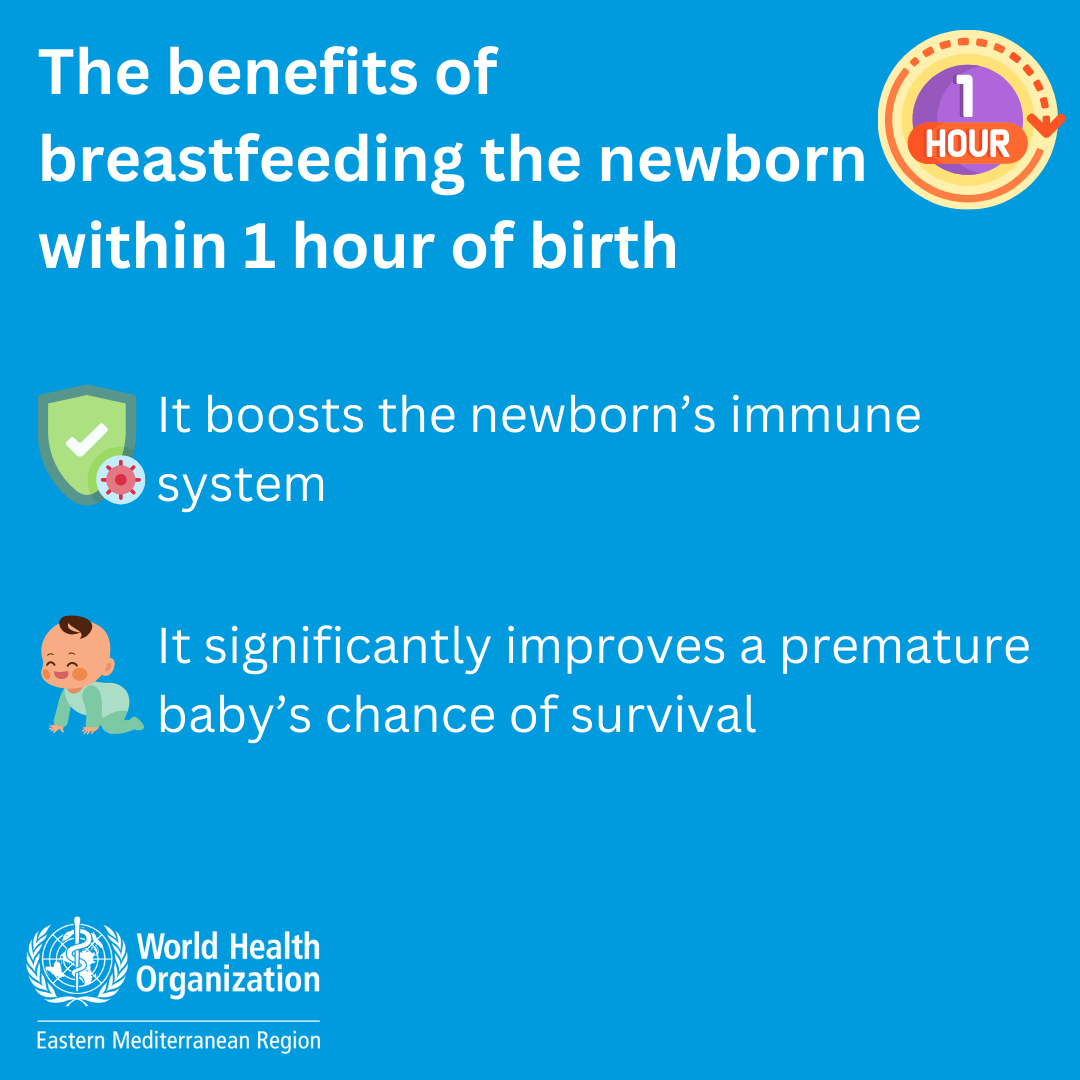Invest in breastfeeding, invest in the future
 1 August 2025 – Since 1992, World Breastfeeding Week (WBW) has been celebrated Annually, in the first week of August. In 2018, a World Health Assembly resolution endorsed WBW as an important breastfeeding promotion strategy. Championed by the World Health Organization (WHO), the United Nations Children’s Fund (UNICEF), Ministries of Health and civil society partners around the globe, WBW serves to remind the public and policy-makers that breastfeeding lays the foundation for lifelong health and development.
1 August 2025 – Since 1992, World Breastfeeding Week (WBW) has been celebrated Annually, in the first week of August. In 2018, a World Health Assembly resolution endorsed WBW as an important breastfeeding promotion strategy. Championed by the World Health Organization (WHO), the United Nations Children’s Fund (UNICEF), Ministries of Health and civil society partners around the globe, WBW serves to remind the public and policy-makers that breastfeeding lays the foundation for lifelong health and development.
This year, under the banner “Invest in breastfeeding, invest in the future”, the campaign casts a spotlight on the ongoing support that women and babies need from the health care system throughout their breastfeeding journey.
Every mother should have access to the support and information she needs to breastfeed for as long as she wishes to do so. Efforts are needed to ensure that health systems offer skilled and sustained support from pregnancy through to early childhood. Policies, laws and programmes should prioritize women, babies and breastfeeding, and communities must uphold every woman and baby’s right to breastfeed.
Breastfeeding protects child health and improves survival, especially in the first months of life. In addition to essential nutrition, it provides antibodies that protect against common illnesses like diarrhoea, pneumonia and infections.
With the right investments, countries can significantly increase rates of exclusive breastfeeding. Around 10% more infants are exclusively breastfed at 6 months compared to 2013 – in some countries the figure reaches 20% – more can be done.
Lead by example. Countries can integrate breastfeeding into national health strategies and ensure accountability through legislation, regulation and monitoring the impact of breastfeeding programmes. Policies that protect breastfeeding and prevent commercial influence over what infants are fed need to be prioritized. Babies must be placed above corporate bottom lines. The International Code of Marketing of Breast-Milk Substitutes needs to be stringently enforced.
Friends, employers and communities all play a role in supporting breastfeeding mothers, and we can all step up our support.
Increased funding for comprehensive breastfeeding programmes, better monitoring systems to track breastfeeding trends, strengthened maternity and paternity leave provisions that encourage breastfeeding, and improved breastfeeding counselling and support in health facilities are all investments in the future – of children, mothers and communities. They reduce health care costs, boost cognitive development and strengthen economies.
Every child deserves the healthiest beginning possible. Let’s make it happen.




Related link



